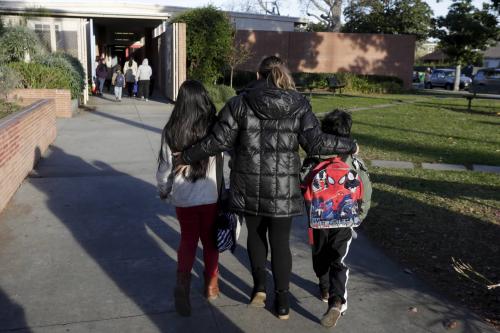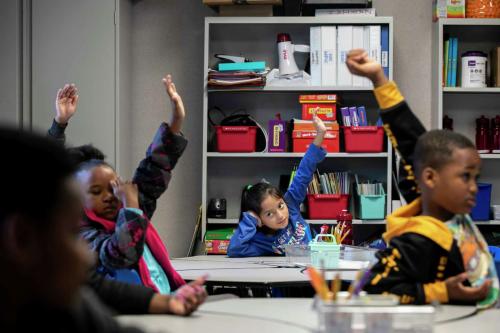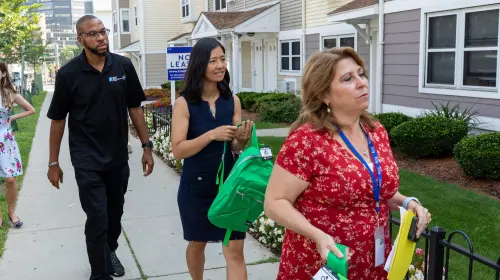Jeremy is a technical director at Microsoft in Chicago, earning a good salary with eight years of seniority and success at the company. But unlike the typical young corporate professional, Jeremy (not his real name for privacy reasons) doesn’t have an MBA or even a bachelor’s degree.
Instead, Jeremy is a graduate of i.c. stars, a two-year Chicago-based information technology program that rewrites the rules on training programs aimed at low-income young adults.
Teaching technology and leadership skills to students coming from tough backgrounds, i.c. stars bets that the skills their students have honed in navigating challenging circumstances—critical thinking and grit—will help them succeed in tech-related fields that value innovation, persistence, and creativity.
Without the experience and connections of older workers, it’s not unusual for young adults—especially those of color, the coming workforce majority—to struggle to enter the labor market. But as we described in a recent paper on employer-led solutions to youth unemployment, that trend has escalated drastically in recent years.
i.c.stars starts with an intense four-month internship built around real-world projects commissioned by corporate clients. Students work in teams, supported by staff from technology firms who serve as mentors and technical advisors. The program purposefully blurs the bright line that often exists between school and work. Students learn technology skills, deliver value to corporate partners, and familiarize themselves with workplace norms in a way that no stand-alone “job readiness” course could match. They pitch ideas, develop and present product concepts, and lead client meetings. Student teams compete against their peers and then come together to develop the winning concept. Deliverables include apps and other digital products that emerge from countless hours of technical design work, back-end programming, testing, and tweaking.
After the internship, students attend college part-time toward an associate degree and are placed with corporate partners or with one of i.c.stars’ social enterprises. Sandee Kastrul, the program’s president and co-founder, notes that graduates are well-equipped to compete in the job market, with “a portfolio, an incredible network, and resiliency—leadership skills.”
The application process is selective, with about 400 applicants for each of the three annual cohorts of 20 students. Candidates take a critical thinking test, write an essay, and interview with a panel of alumni and staff.
However, finding the right young people is only half of the i.c. stars equation: It is equally attentive to nurturing relationships with companies and IT executives—not only to better understand their workforce and business needs, but to serve as a hub for the tech-focused business community. It organizes conferences on topics such as innovation and cybersecurity and hosts more social events, such as the annual TechBash with chief information officers as celebrity bartenders.
The result is a program that delivers value to both companies and participants. With a collaborative and entrepreneurial spirit, i.c.stars taps into and develops the often-unrealized potential of low-income young adults while helping companies meet their workforce needs by producing competitive job candidates.
Kristen Coke contributed to this post.



Commentary
Tough backgrounds make young adults an asset, not a liability, in Chicago tech training program i.c. stars
August 19, 2015